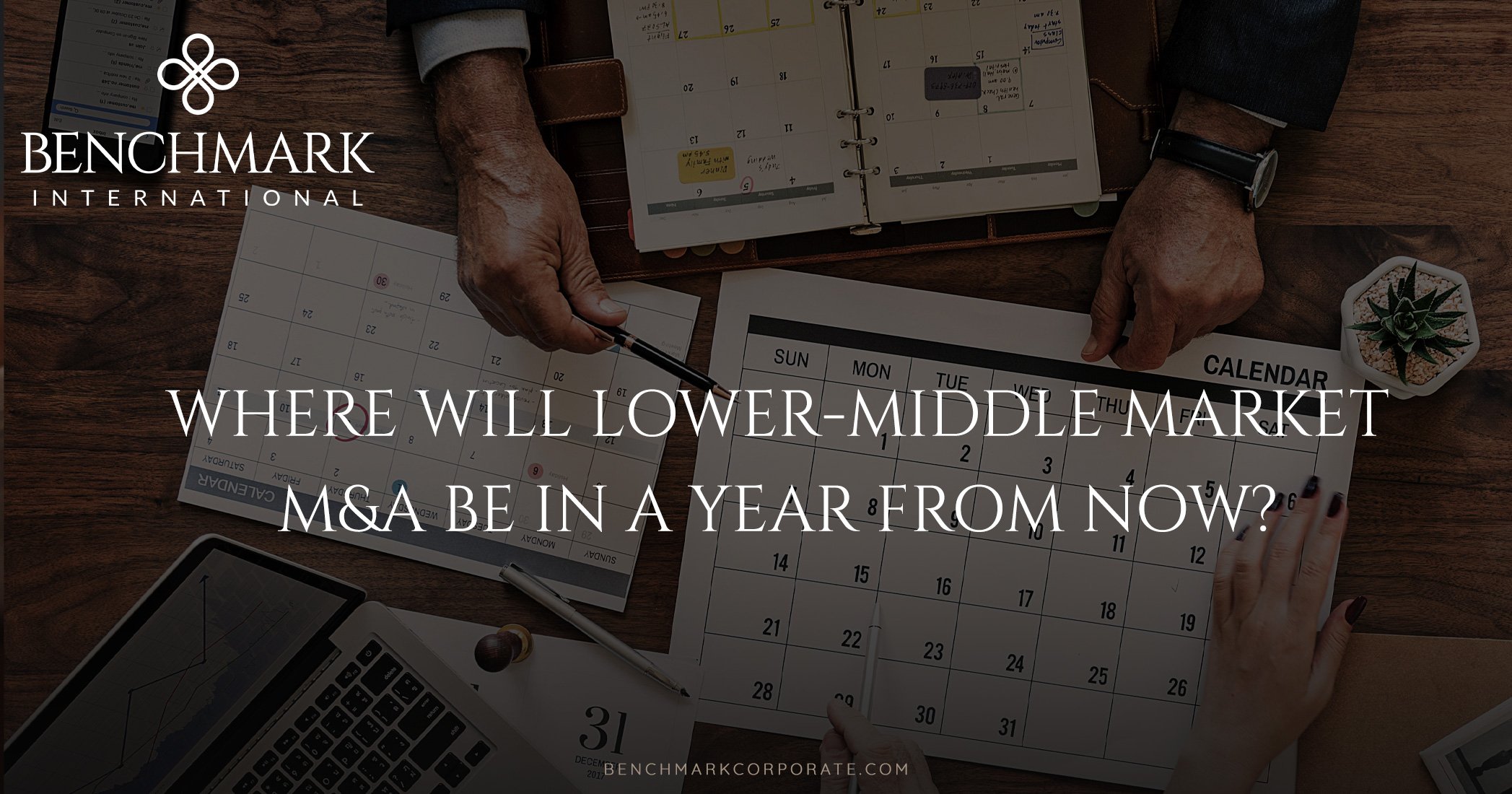The Current Market
The lower-middle market has remained positive for sellers in 2019, thanks to an abundance of buyers that are giving sellers the leverage to demand favorable terms. Most business sectors are seeing strong profits, and the bullish optimism of large-cap investors has spilled over into lower and middle markets. This has resulted in heightened interest and aggressive valuation and buying from private equity firms.
There are several patterns have carried over into 2019 from a very active year in 2018.
• M&A activity has been especially strong in the healthcare and technology industries.
• Acquisitions remain a popular strategy for companies needing talent to keep up with growth.
• Buy-and-build strategies are proven to be working.
• Emerging markets are being attractively valued, especially in the Asia Pacific region.
• Competition for high-quality targets is intense, particularly for businesses that are owned by the rapidly growing retiring population.
• Small business confidence is strong, resulting in increased investment by owners.
What Lies Ahead
The world faces potential changes in the political landscape as the United States 2020 presidential election nears, Britain is under new leadership through the Brexit transition, and the global economy navigates significant political unknowns in the wake of trade deals and tariffs. However, the United States election takes place near the end of 2020, which could possibly stave off any significant effects on the economy until the year 2021.

While no one can ever be certain what the future holds, we still see the benefits of a strong year midway through 2019, yet the lower-middle market has the potential to become more complicated in 2020. The current bullish market is strong but is expected to lose momentum based on the average amount of time that historical highs have been proven that they can be sustained. Many experts warn of a downturn in the economy next year, predicting that a recession is looming. In contrast, some experts expect M&A activity to remain robust regardless of the economy.
Obviously, uncertainty in the marketplace can impede M&A activity. But a recession does not necessarily mean that selling will be impossible. The variables that drive lower-middle market M&A include:
• Lending capacity: The less money a buyer can borrow, the less money they may want to spend.
• Cost of capital: The cheaper a buyer can borrow, the more money they may want to spend.
• Buyer access to equity capital: Strong profits and surplus cash motivate activity.
• Supply and demand for deals: Aging populations entering retirement and business succession plans, strategic buyers focusing on growth, etc.
In the lower-middle market, buyers and lenders both tend to stay much more disciplined regarding their willingness to lend, cost at which they lend, and returns they target. Buyers will be seeking targets with stability, limited cyclical exposure, a business model with recurring revenue, and a history of performing well through a recession.
Should You Sell Now?
The good news is that there is still time before a possible slump in activity and optimism. If you are looking to sell your business, you may have another 12 to 18 months to benefit from the premiums today’s sellers are getting. Keep in mind; it does not mean that after this time is over, you will not be able to sell. Companies are always looking to grow through acquisitions, and the market is always changing. You do not need to feel completely discouraged by any economic slowdown.
Consider how long you are willing to wait to sell your business if the market were to drop. If you do not plan to sell within around five years or more, you can wait patiently for the next market rebound. But if you are determined to sell in the next couple of years, it may be wise to get serious about your exit strategy while conditions are still favorable. Think about what is right for you, your business, and your family when deciding when to make a move.
Contact Us
Our business acquisition experts at Benchmark International can offer exit planning advice and help you plan a solid transition for your company. We will use all the tools at our disposal to get you the maximum selling price while preserving your vision for the future. We can also help if you are looking to buy a business. Contact us today.
READ MORE >>
 Benchmark International
Benchmark International  Benchmark International
Benchmark International 





